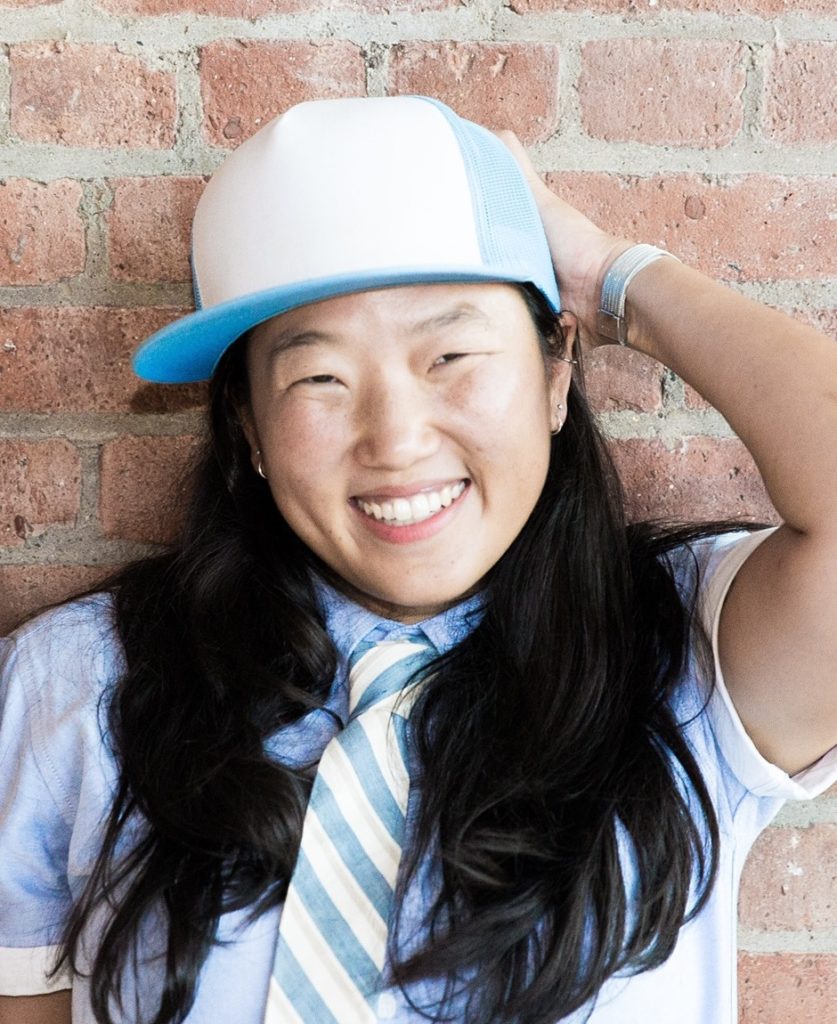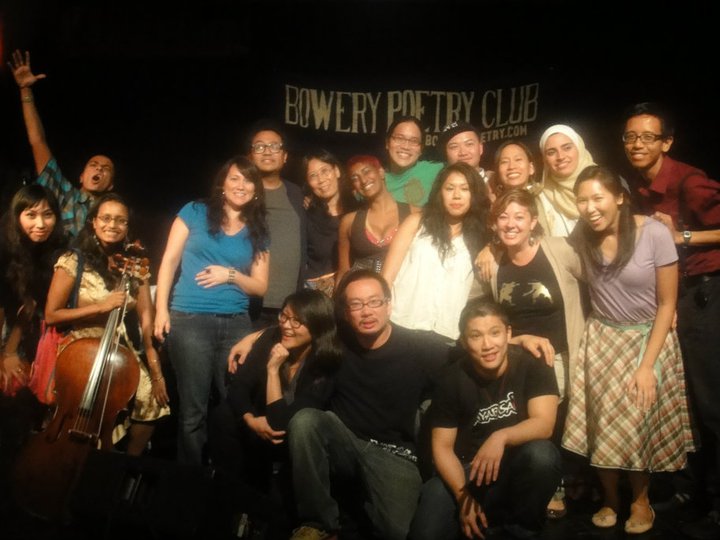
In honor of Pride Month, we’re sharing spoken word artist Arhm Choi Wild‘s poem “At What Cost,” an intimate exploration of the price of claiming queer identity in many Asian and Asian American communities, here on the blog. This powerful piece requires little explanation—but in keeping with our goal to be a space that seeks to highlight not just Asian American poetic production but also craft, process, and performance, we’ve also asked the poet to reflect upon about the writing of this poem and what it meant to her. Here is Wild—in her own words.
* * *
I wrote this poem when I was living in Seoul in an attempt to relearn the language that I had lost for the sake of assimilating into my American privilege. I lived there for six months, a foreigner in my homeland, to gather any Korean that would allow me to talk freely with my mother. If I were more fluent in Korean, could she understand my queerness and therefore accept it? If I had the words to express how, despite her fears, I was loved by a chosen family, would she be able to open her heart? If I gained this depth, would that make up for the closet I had agreed to live in while living in Korea?
I started to wonder if the hyphen in my Asian-American identity meant that I was constantly working an equation: my homeland at the cost of my full self, physical affection at the cost of queerness. Though this poem doesn’t imagine the ideal world where we all are allowed to be ourselves without apology, I wanted to show how complicated the deals are that we broker in order to love not only the motherland but also the self that simultaneously belongs and remains a stranger. Pride is such an important month to celebrate because of these equations that often point to loss—and that we continue to strive to claim what is ours despite the potential of a closed door or a door that only allows part of us inside.
* * *
Arhm Choi Wild
At What Cost
Gay people don’t exist in Seoul, South Korea
don’t get dragged behind cars or dream of lynching ropes
don’t scream underneath burning houses or the fire hose
don’t orgasm, don’t lose their teeth and then their dentures
don’t forget their tampons, don’t make love in the bathtub
and again on the floor because they have fallen in love twice
that day, don’t run a finger over a cheek, wake up for a second
to pull themselves closer, don’t pick up a hammer to bust in
an idea, don’t dream, don’t fuck, don’t say I love you, don’t
dream of fucking to say I love you, don’t skip brushing their teeth
don’t try to stay friends with their exes, because in Korea
gay people don’t exist.
But let me tell you what does.
Let me tell you what has come
from this homophobia
turned homo-blind on these streets
where glamorous ginkgo trees
stand guard.
A group of boys moves off the sidewalk
to give me space.
Boy on left with his hand in back pocket
of boy in the middle who reaches over
to brush the hair out of other boy’s eyes,
all three laughing,
all free to show love in this homo-blind world.
I walk past the boys, duck into a food stall.
It’s cold so I ask for the hot fish soup,
look up from styrofoam cup
to see a woman with her hand on the thigh of a friend,
a finger going up to wipe off a cheek and kiss it
all as part of the conversation
easy like punctuation marks, regular like periods.
My family is no different.
My aunt walks down the street holding my hand
as cars rush by kicking up the dirty ginkgo leaves.
Later that day, another relative talks to me
with the help of her hand on my knee
because I can’t speak deep in Korean.
They touch me with no idea
of what a woman’s hands have meant to me,
how the ways they curl around a coffee cup
or flip through a book have turned me on.
In my motherland,
I don’t dare ask how to say “gay“
because I’m afraid the word
doesn’t exist.
At what cost
can men get the affection
they need from other men?
At what cost
do I turn all past lovers into men,
Sarah into Samuel, Megan into Mark?
At what cost
will I come out to my family
and have them still see me?
It is for the cost of loving this country,
of finally feeling like I fit in,
like I have found the people
to whom I belong.
Gay people don’t exist in Korea,
and I am holding back a tongue
that could break this mirage
because seeing men not afraid to hold hands
and fix each other’s ties is too beautiful—
beautiful like a kiss
in the naked soft of morning,
beautiful like a mother
welcoming her daughter home.
* * *
Arhm Choi Wild is a Kundiman fellow from Ann Arbor, Michigan, who holds an MFA in poetry from Sarah Lawrence College. She was a finalist for the Jake Adam York Prize in 2019 and has been published in the anthology Daring to Repair by Wising Up Press and in the magazines Barrow Street, The Massachusetts Review, Split this Rock, Foglifter, Two Hawks Quarterly, TRACK//FOUR, Peal, Otoliths, and Scholars & Rogues. She has worked as an
educator in New York City for the last six years and has competed in poetry slams and performed across the country, including at Brave New Voices, the New York City Poetry Festival, the Bowery Poetry Club, the Michigan Theater, and Asheville WordFest.
